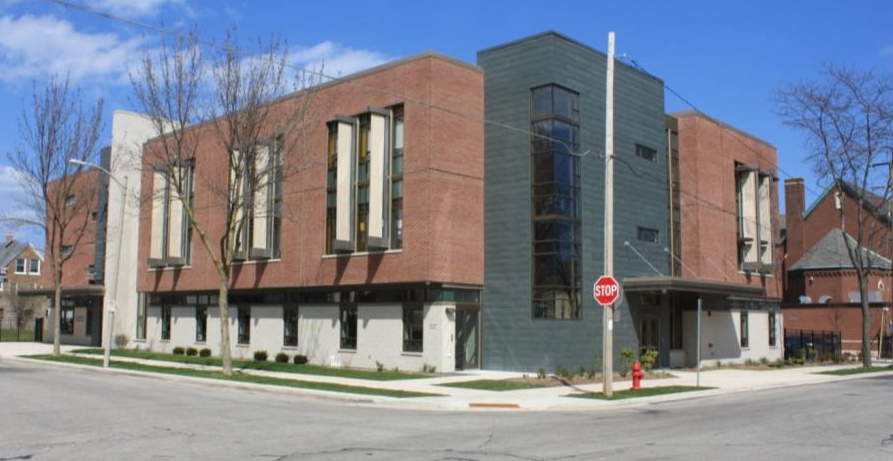Voucher, Charter Schools More Cost Effective
Report finds they deliver at least 50% more education per tax dollar than public schools.
New research from a widely published education scholar documents the cost-effectiveness of Wisconsin’s school choice programs. The results are being released as the Legislature’s Joint Finance Committee votes on K-12 funding,
“I find that private [voucher] schools are 75 percent more cost-effective in Racine and 50 percent more cost effective in Milwaukee,” says Corey DeAngelis, Ph.D. He adds: “Independent charter schools are 63 percent more cost-effective in Racine and 50 percent more cost effective in Milwaukee.”
Dr. DeAngelis relies on Department of Public Instruction data to compare private and charter schools with traditional, district-run schools. The foundation for his analysis are “Report Cards” issued by Governor Tony Evers while DPI Superintendent.
Dr. DeAngelis has authored and co-authored pioneering reports that examine publicly financed education productivity. He received his Ph.D. in Education Policy from the University of Arkansas and holds a Bachelor of Business Administration and Master of Arts in Economics from the University of Texas at San Antonio. His research on a range of contemporary education issues has been published in peer-reviewed academic journals such as Social Science Quarterly, School Effectiveness and School Improvement, Educational Review, Educational Research and Evaluation, Journal of School Choice, and the Cato Journal. Dr. DeAngelis currently is Director of School Choice at the Reason Foundation.
As explained in the DeAngelis study, DPI’s “Accountability Report Card scores range from 0 to 100 and include data on multiple indicators for multiple years. The four priority areas of the Accountability Report Card are student achievement, growth, closing gaps, and on-track and post-secondary success.”
The study compares per-pupil spending for each “accountability” point between private voucher schools, independent public charters, and traditional district-run schools. For example:
In Milwaukee…the average student-weighted Accountability Report Card score was 61.07 for district-run public schools. The average student- weighted funding amount was $10,588 for district-run public schools. In other words, district-run public schools in Milwaukee delivered 5.77 Accountability Report Card points per $1,000 of public investment.
On the other hand, private schools participating in a voucher program in Milwaukee received a student-weighted Accountability Report Card score of 67.91, on average. The average student-weighted funding amount was $7,853 for private schools in Milwaukee. Therefore, private schools participating in a choice program in Milwaukee delivered 8.65 Accountability Report Card points per $1,000 of public investment.
Private schools delivered 2.88 more Accountability Report Card points than district-run public schools, a 50 percent cost-effectiveness advantage favoring private schools in Milwaukee.
Dr. DeAngelis used a conservative approach that understates the private school cost-effectiveness advantage. Specifically, the $10,588 per-pupil funding for MPS excludes federal and state categorical aid. Actual MPS per pupil spending is about $13,500/pupil.
The DeAngelis report also examines results for private schools in the statewide (non-Milwaukee/Racine) choice program and out-state independent charters. Overall, it finds:
-Private schools participating in choice programs produce 2.27 more points on the Accountability Report Card per $1,000 in public investment than district-run public schools across 26 cities in Wisconsin, on average.
-Independent charter schools produce 3.02 more Accountability Report Card points per $1,000 in public investment than district-run public schools across Milwaukee and Racine, on average.
These findings represent a 36 percent cost-effectiveness advantage for private schools relative to district-run public schools and a 54 percent cost effectiveness advantage for independent charter schools relative to district-run public schools.
The DeAngelis findings provide a stark framework for funding decisions that will be made by the Joint Finance Committee. The findings undercut Governor Evers’ goal of substantially increasing K-12 aid. Further, they cast in a new light the “historic” aid increases approved by the GOP Legislature and Governor Walker in the current budget.
The DeAngelis study concludes with advice that, if followed, truly would be “historic”:
“This study suggests Wisconsin’s private schools and independent charter schools tend to do more with less. Student-centered funding might give the Badger State’s district-run public schools stronger financial incentives to become more efficient. In addition, giving district-run public school principals more autonomy regarding budgeting decisions could similarly lead to efficiency improvements.
“Since education dollars are scarce resources, and because choice schools have strong financial incentives to spend money wisely, policymakers should consider allowing 100 percent of public funding to follow students to whatever type of school works best for them. After all, the existing evidence suggests that Wisconsin’s public and private school choice sectors are wise investments.”
The Contrarian
-
Parents May ‘Break Up’ MPS
 Feb 8th, 2022 by George Mitchell
Feb 8th, 2022 by George Mitchell
-
School Choice Key Issue in Governor Race
 Sep 1st, 2021 by George Mitchell
Sep 1st, 2021 by George Mitchell
-
Jill Underly Flunks School Choice 101
 Feb 22nd, 2021 by George Mitchell
Feb 22nd, 2021 by George Mitchell






















Another “study” coming out of the University of Arkansas with support from the Walton Foundation that finds statistics to support school choice. To me school choice gets down to two basic questions. Taxpayers elect their local school boards to oversee education programs while the school choice program authorizes a hodge lodge of unaccountable entities that gives taxpayer dollars to unaccountable choice schools. If church communities choose not to support their own schools, why is it suddenly the responsibility of the taxpayers to fund religious education in these schools?